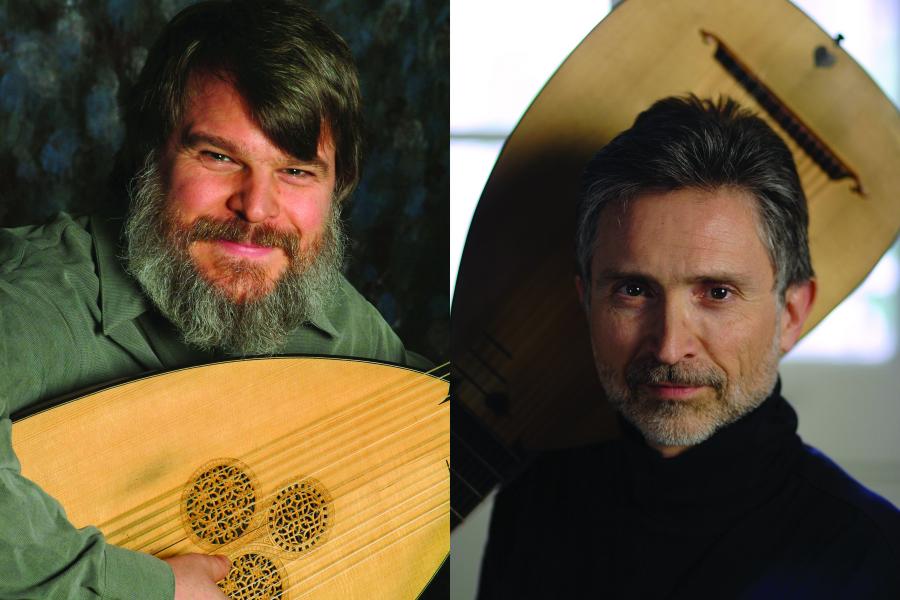UC Presents opens 2017 with a delightful afternoon of lute music
Rare is the opportunity to hear two of the greatest living players of an instrument play together. And rarer still when the instrument is as scarce as the lute.
Just such an opportunity was afforded Sunday at the Reva and David Logan Center for the Arts, where the University of Chicago Presents series offered an afternoon of two-lute music played by Paul O’Dette and Ronn McFarlane.
The risk, of course, in such a concert is that the audience will find the music too homogenous. Any dedicated classical concertgoer can be counted on to appreciate the subtle differences between, say, two fugues by Bach or two sonatas by Beethoven. But between two fantasias by Renaissance lute composers they’ve probably never heard of?
So, even more laudable than O’Dette and McFarlane’s mastery of their instruments was the intelligence of their programming, particularly their maximization of variety.
The program’s two halves were each devoted to music of a different country: the first to Italy, and the second to England. The component pieces of the halves seemed chosen specifically to accentuate the differences between these two national styles. The Italian music was more cerebral: mazes of imitative counterpoint and extravagant ornaments. The English works were folksier: the melodies more tuneful, the textures more chordal, and the rhythms friskier.
In the majority of the duets played, one lute had a melodic role and the other was accompanimental, duties that O’Dette and McFarlane traded throughout the afternoon. But in the more evenhanded pieces, one could witness the utter seamlessness of their teamwork. In a piece like John Danyel’s A Fancy, only an eagle-eyed watcher could have kept track of who was playing the melody at any given moment.
Many of the pieces gave the players a chance to explain aspects of Renaissance lute culture to the audience. For example, O’Dette described the pedagogical origins and function of the three selections by Vincenzo Galilei (father of the famed astronomer). And McFarlane used the pieces by Piccinini to demonstrate the more metallic tone-color that could be cultivated by playing closer to the bridge, as Piccinini preferred.
Each half also contained a virtuoso display piece or two: two transcriptions by Giovanni Antoni Terzi of canzone by Claudio Merulo in the first half, and John Danyel’s Passingmeasures Galliard in the second. The intricacy of the pieces themselves and of O’Dette and McFarlane’s nimble fingerwork was simply dazzling.
In addition to all the duets, each lutenist played a couple of solo pieces. These gave them a chance to display their individual personalities, which were often concealed by the cohesiveness of their cooperative work.
O’Dette made the interplay between contrapuntal lines translucent in all of his solos. Listening to his performance of Francesco Da Milano’s Fantasia Settima with eyes closed, one could easily believe that both men were still playing.
McFarlane brought a subtle freedom of tempo to his solo work, such as in his sensitively timed rendition of Alessandro Piccinini’s Passacaglia.
The warm response of the audience elicited an amusing choice of encore: Dowland’s oddball My Lord Chamberlain, His Galliard, which is scored for two players on one lute. With its comically choreographed switching of hands, it was like a 16th-century Victor Borge routine.
The Imani Winds perform 7:30 p.m. January 20 at Mandel Hall. chicagopresents.uchicago.edu/
Posted in Uncategorized



